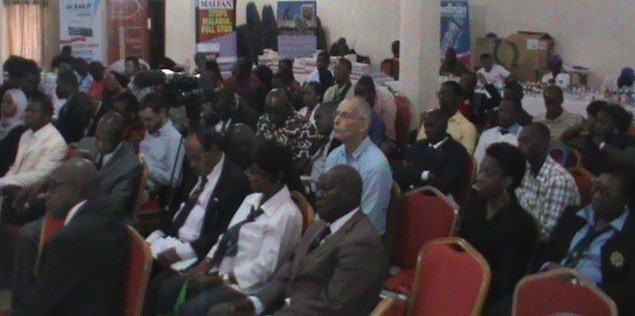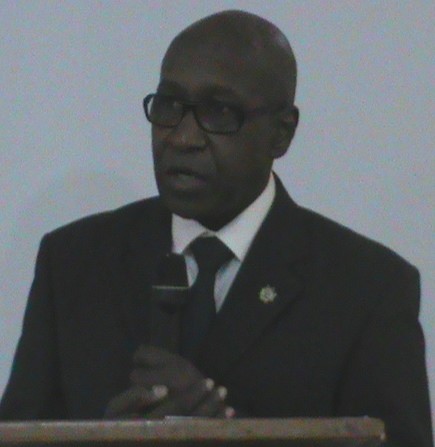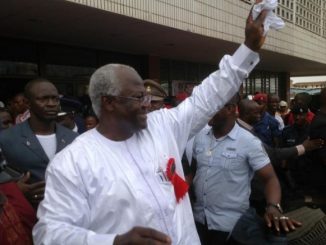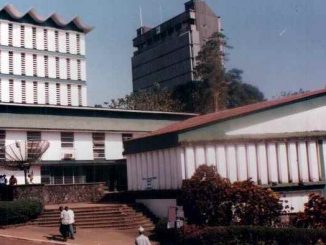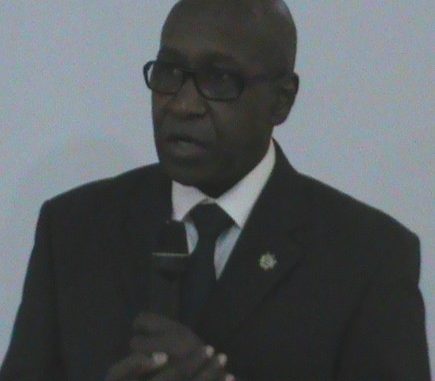
By Jonathan Abass Kamara —
The West African College of Physicians (WACP) Sierra Leone Chapter has concluded its Annual General and Scientific meeting with a call for health system strengthening in all major health facilities in the country a ceremony held at Hill Valley Hotel in Freetown.
Cross section of members and other health professionals
The WACP was established in 1976 with the objectives to promote professional training of physicians in West Africa, promote the highest standard of professional practice, ethics and morals of physicians, promote health and health care, determined persons to be designated as specialist Physicians, and to advise and assist the governments of the sub-region, the West African Health Organization (WAHO) and other relevant organisations on matters relating to the training, health promotion, health care and research in West Africa among other key objectives.
Making his address, the President, West African College of Physicians and National Chairman, Dr. Duromani Lisk expresses concern over the brain drain in the medical profession and the inadequate equipment to match 21st century practice.
President, West African College of Physicians and National
Chairman, Dr. Duromani Lisk
Most of the nurses and Community Health Workers he noted are found in peripheral Health Units than in the Secondary and Tertiary hospitals and expressed the need for the recruitment of more trained and qualified staff within the civil service. Both physical structures and personnel, he said are vital for efficient and effective service delivery.
He called for proper management, vision, accountability and efficient leadership in all structures that has to do with governance, stressing the need for dedication, commitment and passion in making the hospitals more viable.
Dr. Lisk lauded the efforts of Past Chairman and Vice President of the College Dr. Effie Gooding for pushing the Sierra Leone Council of Postgraduate Colleges of Specialist Act, catalogued with the Teaching Hospital Complex Administration Act which she described as a bonus. This Act, Dr. Lisk said gives the hospital management Board all the power it needs to restructure and manage our hospitals, hoping that it would be allowed to maintain its autonomy.
Commenting on their expectations for the year 2016, Dr. Lisk advocated for more members and fellows, accreditation to train Internists in-country, more of their graduates to consider training in Sierra Leone, and the Ministry of Health and Sanitation to formulate policies that would encourage them against looking for greener pastures.
Delivering the keynote address, Deputy Minister of Health and Sanitation I, Madam Madina Rahman while dilating on the theme: “Disaster Preparedness for National Medical Emergencies,” described the theme as appropriate and timely especially within the context of health care delivery system that is rapidly recovering from the dreadful Ebola, and the Zica virus threats.
Health, Madam Rahman, said is a primary concern to the government noting that a healthy country is not only successful, productive and equitable but economically vibrant and viable.
She informed her audience that they are currently ushering the second phase of the President’s 10-24 months Recovery priorities, standing on double thresholds of the end of the MOGs and the beginning of the Sustainable Development Goals (SDGs), as well as the end of the early post Ebola Recovery Period and the beginning of the second phase of the Recovery.
Central to achieving the SDGs and the Post Ebola Recovery Agenda, the Deputy Minister said is in recognition of the need to address the human resource issue in a more sustainable way, taking into consideration the shortage of health workers and their poor distribution throughout the country as optimal concern, as it impaired the country’s ability to deliver its basic health package.
Dilating on the area of specialties, Madam Rahman disclosed that there are over 40 young Sierra Leoneans doctors pursuing residency training in Kenya, Nigeria, Ghana, Cameroun, Malawi, and South African and elsewhere but that far more than this number are still at home waiting for opportunities to move out of the country at the next available opportunity.
The method of training health professionals she said is not only frustrating but expensive, inefficient, and non-sustainable for a developing country like Sierra Leone. Therefore surgical task-shifting paradigm is now being applied to many fields as being witnessed locally in the ongoing Nurse-Anesthetists Programme, Sight Savers, and also in the area of Mental Health in Sierra Leone.
In line with the mainstream challenges, Madam Rahman informed her audience that the Ministry of Health and Sanitation in the past 12 months established a University Teaching hospital to formalize the nexus between the medical school and the service hospital, established the Postgraduate college for training all cadre of health professionals at specialist level, and the establishment of the School of Clinical Services.

